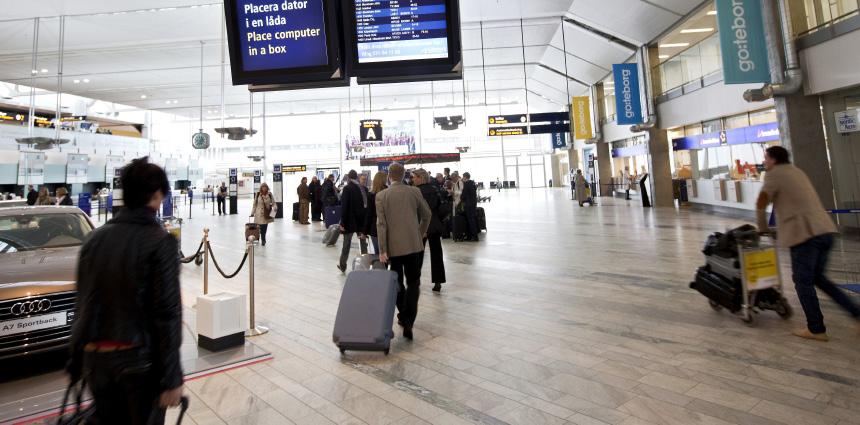
2 minute read
400 trees
Photo: JOHAN WINGBORG
Henrik Aronsson
Advertisement
Elin Gunnarsson
Fredrik Högberg and increased internatio- nalization. Undoubtedly, there are challenges, but as students we believe that both areas are important and can be developed simultaneously, for example through clima- te-smart travel or more digital meetings.
THE COMMITTEE also propo- ses developing the Climate Fund, says Fredrik Högberg. – Today, a standard fee of 118 SEK is imposed on each flight. The money is donated to a Climate Fund that staff and students can then seek funding from for various climate-related projects. Our proposal is to set a price for every kilogramme of carbon dioxide emissions instead. For example, the Västra Götaland region has a model where one kilogramme of emissions costs 1.5 SEK. And Trafikkontoret includes a cost of 7 SEK per kilogramme of emissions when planning road construction. If the University of Gothenburg lies somewhere in between, perhaps at 3.5 SEK per ki- logramme of carbon dioxide emissions, it would mean that the Climate Fund would receive about 50 million SEK per year, compared with the current amount of approx- imately 2 million SEK.
Such a system would, among other things, enable internal emissions trading, Fredrik Högberg points out.
– A DEPARTMENT that does not emit much carbon diox- ide could benefit from being climate friendly. And if a lot more money is contributed to the Climate Fund, they could of course make really substantial investments in climate-smart solutions.
Travel is often seen as so- mething positive. But Fredrik Högberg thinks that too much travel can also be a health and safety issue.
– It may be nice to avoid having to travel to a confe- rence just to give a speech for twenty minutes. If the alter- natives are good, such as a digital meetings for example, there is a tremendous benefit both for the climate and the individual.
ELIN GUNNARSSON is very pleased that the University of Gothenburg is now moving forward with its climate initiatives.
– It is important to practise what you preach. All the uni- versity’s sustainable educatio- nal programmes will not be credible if the university does not also do what it can to be sustainable.
The Vice-Chancellor has now given the committee a mandate to continue working on the proposals. The com- mittee’s outcomes must be reported no later than May 1. – In the autumn, a pilot study will also be conducted in relation to the proposal for the carbon budget, says Henrik Aronsson.
Eva Lundgren Allan Eriksson
Facts
The University of Gothenburg’s goal is to reduce carbon dioxi- de emissions by 50 percent by 2030. The following areas are included: energy usage, busi- ness travel, education, research, students, collaboration and uti- lization, commuting to and from work, buildings, purchasing and procurement, food and catering, investments, carbon sinks and waste management. The Climate Framework com- mittee consists of Mattias Gok- sör, Pro Vice-Chancellor, Malin Broberg, Dean of the Faculty of Social Sciences, Henrik Arons- son, Head of the Department of Biological and Environmental Sciences, as well as Elin Gun- narsson, Vice President of GUS.










